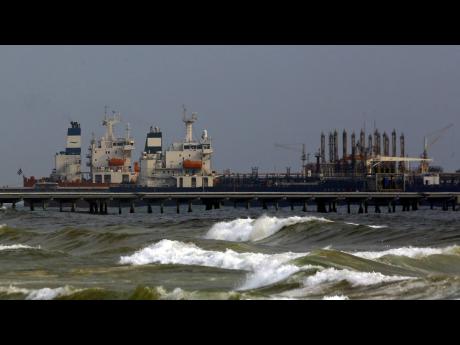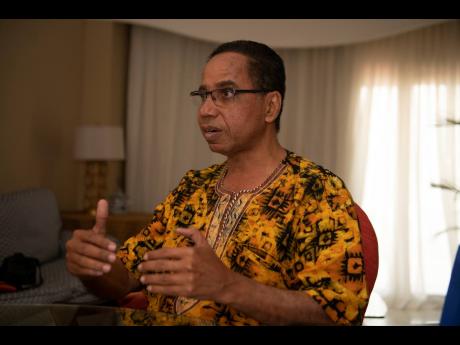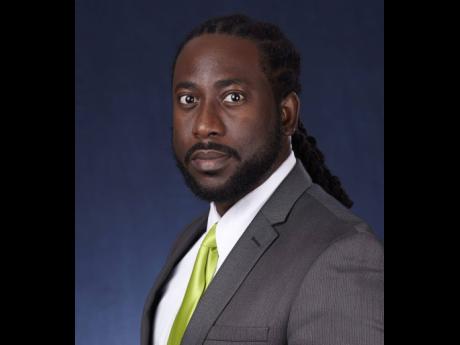Invasion fears heighten in Venezuela - Ghost of Grenada revolution triggers jitters as US election nears
The political ghost of the 1983 Grenada revolution is spooking the Nicolás Maduro regime in Venezuela, and concerns are growing in the troubled South American country that the United States will invade it ahead of its presidential elections in November.
A diplomat, who contacted Sunday Gleaner two weeks ago, believes that visits to the region by United States Secretary of State Mike Pompeo were “collusion” plans with “elements” in CARICOM to invade the country.
According to him, the timing was perfect as all countries were preoccupied with the COVID-19 pandemic, but the geopolitical climate leading to the 1983 invasion of Grenada is similar. He said then US President Ronald Reagan used the invasion to boost his re-election chances a year later.
“On 25th October, USA, with Jamaica’s support, invaded Grenada. That is 37 years ago and [Ronald] Reagan used the success of that as part of the campaign in his re-election. He came to your country first after his re-election, after the Grenada revolution, to say thank you for the role Jamaica played. That anniversary is days away and so is US elections,” said the diplomat.
“[Donald] Trump has no foreign policy success. For a long time, the US wants to control Venezuela politics and its oil. It has been planning to overthrow Venezuela since the death of our beloved commandante [Hugo] Chávez,” he charged.
The country has been politically incapacitated since the disputed elections in 2018 which returned Maduro to power for a second six-year term, with several countries recognising the US-backed Juan Guaido as the president.
“I don’t believe an invasion is imminent. Venezuela is not like Grenada, which was a very small country,” Barbados ambassador to CARICOM Dr David Comissiong told The Sunday Gleaner, although admitting that the situation remains one of great concern.
“This is a country which is far more powerful, with a very well developed military tradition which goes back over 200 years. So any country that seeks to invade Venezuela will pay a heavy price in terms of the military power that they would unleash,” said Comissiong.
Costly Misadventure
Jersey City University Professor Jermaine McCalpin believes a US invasion would be a costly misadventure.
“I don’t believe the fears are founded. While the 37th anniversary of Operation Urgent Fury is upon us, I do not think the domestic standing of the current US government can afford such a costly foreign policy misadventure. While it would detract attention from domestic policy failure, I don’t see the international support for such an invasion,” he weighed in when contacted by The Sunday Gleaner.
“The election in the US is certainly consequential to the extent that, if the incumbent wins, it would be a continuation of more reckless Monronian Manifest Destiny – to intervene in sovereign affairs of regional states in order to fulfil the US’s own goal of aggressive control of the region,” he said.
The US has been the strongest supporter of opposition elements in Venezuela. The oil-rich country has been forced to seek buyers from outside the region, and countries with bilateral relationships have faced threats of sanctions.
Jamaica, in defending its decision to cease its oil arrangement under the PetroCaribe deal, said it was unable to pay Venezuela its share of revenue.
It has also expropriated Venezuelan shares in the Petrojam refinery, causing the South American country to sue for US$250 million in compensation.
Michael Hylton, QC, who represents Venezuela’s interest in the case, said Jamaica has not filed a defence to the claim.
Jamaica has also closed its embassy in the country.
The Venezuelan diplomat said the US has successfully played divide-and-rule politics in the region, including CARICOM.
Citing the US efforts to dole out COVID-19 relief across the region, the diplomat said that it was not coincidental that Pompeo had visited Guyana and Suriname, which border Venezuela.
The Suriname visit is viewed as exerting “early influence” on Chan Santokhi, the new president of the country. Its former president, military strongman Dési Bouterse, relinquished power this year.
Border Dispute
Guyana and Venezuela have also been engaged in a border dispute for more than 200 years over an area called Guyana Esequiba.
Brazil and Colombia, which also border Venezuela, are among 26 countries in the region – headed by Jamaica – to receive COVID-19 relief assistance under the Humanitarian Assistance Programme (HAP) of the Miami-based United States Southern Command.
The Southern Command is yet to respond to Sunday Gleaner queries on the support across the region.
Respect for Jamaica as a leader in CARICOM has fallen in Venezuela, claimed the diplomat.
“Every action involving Jamaica is now viewed with great suspicion. Remember, Jamaica is one of five CARICOM members of the Lima group that met with Trump in Florida. For Venezuela, we don’t seek to make enemies. We need more friends than enemies, but the action of some of your leaders have left our country feeling betrayed,” he stated.
In March 2019, Trump met with leaders from the Bahamas, Dominican Republic, Haiti, Jamaica and St. Lucia at his private residence in Florida. Three regional prime ministers – Gaston Browne of Antigua and Barbuda, Ralph Gonsalves of St. Vincent and the Grenadines, and Mia Mottley of Barbados – repudiated the countries for attending.
Browne questioned whether the visit represented diplomacy or bribery. Gonsalves said the meeting was troubling and cut across established mechanisms in place. And Mottley said Barbados would not be party to any meeting where all of CARICOM was not invited.
All have called for unity on the issue.
Jamaican Prime Minister Andrew Holness told journalists in Florida at the time that the meeting was one of trade and the promotion of stronger relationships with the region.
Comissiong insists that the region must remain “a zone of peace”.
“We in CARICOM must always ensure that we pursue a principled foreign policy that is in keeping with the fundamental principles of international law, the United Nations Charter, and our own principles of the region being a zone of peace. That has been a plank of CARICOM’s policy since 1979, when Grenada, under late Prime Minister Maurice Bishop, piloted a resolution at the Organization of American States for the recognition of the region as a zone of peace,” Comissiong told The Sunday Gleaner.
Efforts to get an official response from CARICOM were unsuccessful.



